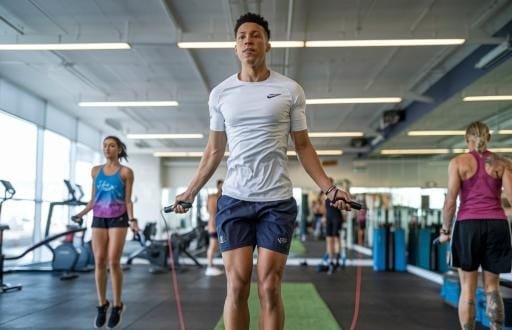The labyrinthine journey of weight loss is often punctuated by moments of frustration and discouragement. The plateau, that insidious nemesis of progress, lurks in the shadows of every fitness endeavor. After the initial surge of enthusiasm and rapid gains, many find themselves trapped in a stagnant state, their aspirations stymied by a seemingly insurmountable wall. However, breaking through these plateaus requires a nuanced understanding of the body’s adaptive mechanisms and the strategic implementation of advanced techniques.
Deconstructing the Plateau
Plateaus are often misconstrued as failures, but they are, in fact, natural physiological responses to sustained stimulus. When the body becomes accustomed to a specific workout regimen, it adapts by becoming more efficient, requiring increased challenge to elicit further progress. To shatter this plateau, a multi-faceted approach is necessary.
Periodization: A Strategic Blueprint
Periodization is the art and science of systematically manipulating training variables to optimize performance and prevent stagnation. By strategically cycling through different phases of training—such as hypertrophy, strength, and power—athletes can continually challenge their bodies and stimulate adaptation. Incorporating microcycles, mesocycles, and macrocycles into your training regimen can provide a structured framework for progression.
Nutrition: Fueling Your Breakthrough
Optimal nutrition is the bedrock of any fitness endeavor. While caloric deficit is crucial for weight loss, it’s equally important to ensure adequate macronutrient and micronutrient intake. Experiment with different macronutrient ratios to find what works best for your body composition goals. Prioritize whole, unprocessed foods, and consider incorporating supplements to bridge nutritional gaps.
Sleep: The Overlooked Cornerstone
Sleep is often underestimated but is undeniably critical for recovery and adaptation. Aim for 7-9 hours of quality sleep each night to optimize hormone regulation, muscle repair, and cognitive function. Create a sleep-conducive environment, establish a consistent sleep schedule, and minimize exposure to blue light before bed.
Mindset Mastery
The mind is a powerful tool that can either hinder or propel progress. Cultivate a growth mindset, embracing challenges as opportunities for growth. Visualization techniques can enhance performance and motivation. Practice mindfulness to reduce stress and improve focus. Remember, progress is not linear, and setbacks are inevitable. Persistence and resilience are key.
Additional Strategies
- Increase intensity: Gradually increase the intensity of your workouts to continue challenging your body.
- Incorporate interval training: Alternate between high-intensity bursts and periods of rest to boost metabolism.
- Experiment with new exercises: Introducing variety can stimulate adaptation and prevent boredom.
- Re-evaluate your diet: Ensure you’re consuming enough protein, carbohydrates, and healthy fats.
- Manage stress: Chronic stress can hinder weight loss. Practice relaxation techniques like meditation or yoga.
Conclusion
Breaking through plateaus is a testament to an athlete’s determination and adaptability. By understanding the physiological mechanisms at play, implementing strategic training and nutrition protocols, prioritizing sleep, and cultivating a resilient mindset, individuals can overcome these challenges and continue their journey towards peak performance. Remember, progress is not about perfection but about consistent effort and a willingness to explore new frontiers.
FAQ
- How often should I change my workout routine? Consider changing your routine every 4-6 weeks to prevent adaptation and plateaus.
- Is it necessary to count calories to break through a plateau? Calorie counting can be helpful, but it’s not essential. Focus on whole, nutrient-dense foods and being mindful of portion sizes.
- How can I improve my sleep quality? Establish a consistent sleep schedule, create a relaxing bedtime routine, and optimize your sleep environment. Consider using relaxation techniques like meditation or deep breathing.
- What if I’m still not seeing results after trying different approaches? Consult with a qualified fitness professional to assess your training, nutrition, and lifestyle habits. They can provide personalized guidance and support.
- Is it normal to experience plateaus in fitness? Plateaus are a normal part of the fitness journey. They are an opportunity to reassess your goals and implement new strategies to continue progressing.











